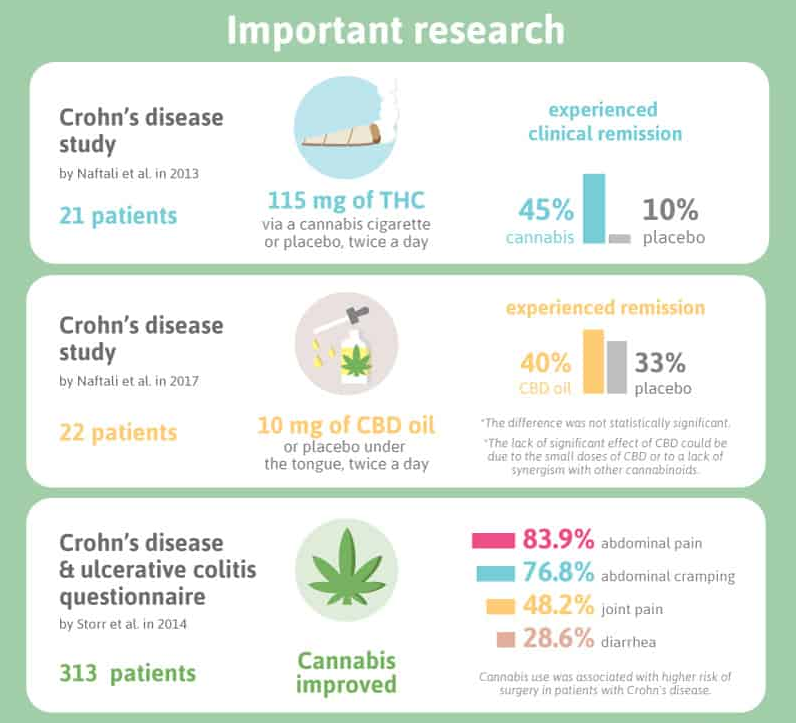A handy infographic was published last week covering the research and statistics on cannabis as a treatment for inflammatory bowel disease (IBD).
Crohn’s disease is a type of IBD that causes inflammation in the digestive tract. According to the U.S. Centers for Disease Control and Prevention, about 1.3% of American adults suffer from IBD. In Canada, 270,000 people live with it.
Dr. Brian Bressler, a gastroenterologist and assistant professor at the University of British Columbia Department of Medicine who specializes in Crohn’s disease and ulcerative colitis, and who also collaborated on the infographic, hints at the potential of medical cannabis for reducing and treating the symptoms of IBD.
According to the data provided, between 12 and 15% of IBD patients already use medical marijuana to help alleviate symptoms like nausea, vomiting, and diarrhea.
“Cannabis affects the body because THC mimics natural cannabinoids and is capable of engaging endocannabinoid receptors,” Dr. Bressler writes.
However, the infographic also highlights the research we have so far on the use of cannabis in treating the common symptoms of IBD.
The numbers show promise

One small study with 21 participants was carried out by Israeli researchers in 2013. As part of the study, researchers gave participants suffering from Crohn’s disease two cigarettes daily.
Some patients received cigarettes containing THC, while others received a placebo. After two months, the study found that 45% of the THC subjects achieved complete remission. On the other hand, only 10% from the placebo group entered remission.
Included in the infographic is a 2017 study that explored the effects of CBD oil on IBD patients. This study found that 40% of the participants that were administered CBD oil experienced remission as opposed to 33% from the placebo group. These results might be related to the doses of CBD used during the study.
Finally, the infographic sums up the results of a 2014 survey which found that 83.9% of respondents with IBD said cannabis had helped them with abdominal pain, while 76.8% said they experienced less abdominal cramping with cannabis.
Although the first study covered by the infographic has shown promising results, Dr. Bressler warns that a different trial carried out in Canada showed that cannabis use was associated with a higher risk of surgery in patients with Crohn’s disease.
“More studies are needed to determine the effect of cannabis and how different cannabinoid combinations and modes of consumption change that affect,” the infographic concludes.





